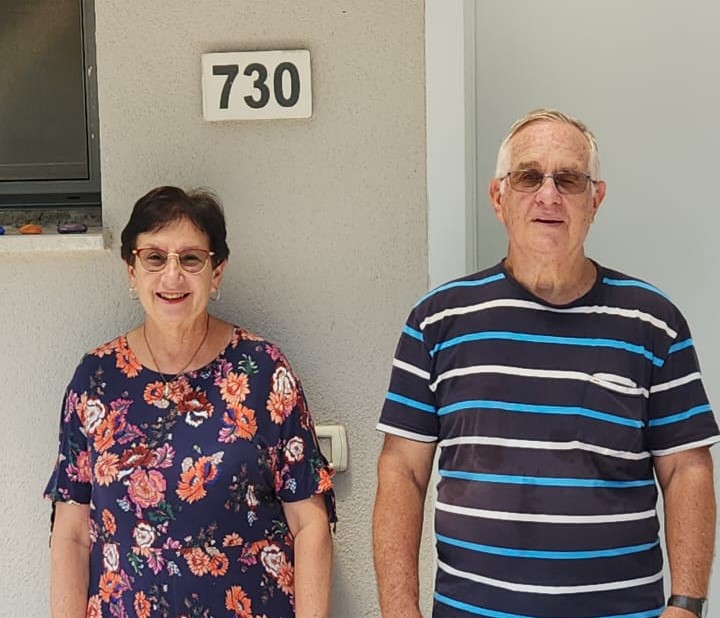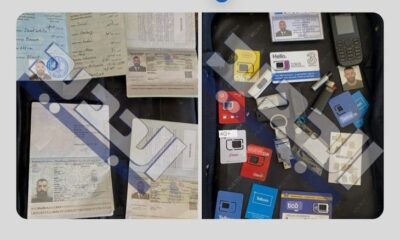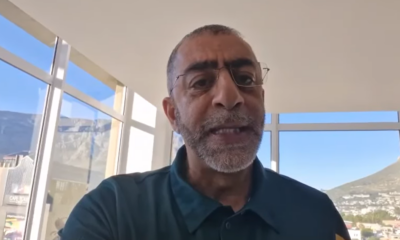
Israel

Refugees at home: the plight of Israel’s evacuees
Living just 400m from the Lebanese border, South African olah Adrienne Chonowitz thought she was leaving for only a few days at most when she, her husband Hilton, her daughter-in-law, and grandchildren evacuated their homes on Kibbutz Ma’ayan Baruch, on 8 October. The Chonowitz’s two sons stayed behind to guard the kibbutz as part of its emergency squad.
Almost 10 months later, she and her family have moved four times and have been able to visit their kibbutz home briefly to swap out clothes as the seasons changed. “Those few visits have been filled with mixed emotions,” she says from her current accommodation near the Kinneret. “It feels like my house no longer has a soul, no longer has a heart. The hardest part of being displaced is not being in your own home and not knowing when you’ll be able to return.”
This is the reality for 151 families of South African origin who have been evacuated since the beginning of the war along with the thousands of other displaced Israelis, suffering silently as refugees in their own country while the world ignores their plight. South African olim who are displaced expressed positivity, hope, and gratitude when speaking to the SA Jewish Report, yet at the same time say that lack of communication from the government and the endlessness of not knowing if they will ever be able to return is difficult to endure.
“Very few have returned home,” says Telfed Chairperson Maish Isaacson, who has travelled up and down the country to visit displaced families and support them through Telfed’s work. “From the north, there are 32 families of South African origin, and from the south, there are 19 families of South African origin who have been evacuated.”
Isaacson saw the horrors of 7 October firsthand. As a Zaka volunteer, he helped to process bodies for identification. Now, he works tirelessly through Telfed to assist South African olim and all Israelis to navigate their new reality. From the earliest hours of the war, Telfed reached out to evacuees with financial, emotional, and social support that continues to this day. In the early days, this meant providing new laptops for school and work, vouchers for food and clothes, and social support. Since then, it has meant driving long distances to visit them, bringing them gifts, and providing ongoing assistance.
For evacuees, “there’s no light at end of the tunnel”, he says. “Some don’t want to return, and for some, it will take years to rebuild. In addition, many can’t work and need financial assistance. That’s why Telfed is here. Please support us so we can support them.”
Chonowitz says that she and her family evacuated voluntarily on 8 October when the possibility of infiltration from the north loomed large in their minds. The kibbutz was officially evacuated only 10 days later. The couple stayed with friends, then family, and then joined their community at a hotel on the Kinneret. When their daughter-in-law struggled to live in a single room with her children, they moved to a hotel that provided a lounge, and the Chonowitzes followed. The hotel is now their home for the foreseeable future.
After she and her husband made aliya in 1987, they settled on Ma’ayan Baruch and have lived there ever since. “Three years ago, my son and his wife built their own home on the kibbutz,” she says. Living close to her grandchildren in the close-knit environment of the kibbutz was a dream come true, but that idyll was shattered on 7 October. Then on 13 July, a Hezbollah rocket hit the kibbutz, causing a fire that severely damaged the young family’s new home. Though it was empty at the time, it’s a severe blow. Chonowitz says at least 21 houses were affected.
For now, her life remains in limbo. “There are little things people don’t realise are hard, like having to find a new doctor in your area or not being able to cook a meal,” she says. “It’s like starting your life over again.”
She has witnessed her grandchildren battle with living in a tiny room and not being able to attend regular schooling. Many of the displaced families viewed the beginning of the school year, 1 September, as the time that they would hopefully return home, and at first, the government set it as a deadline. But with the possibility of a northern war growing by the day, that 1 September deadline has become a distant dream. Children will be reabsorbed into the schools near where they are staying, and “we will continue to adapt to our new reality”, says Chonowitz.
She and her husband try to stay positive and busy. She says hotels across the country have gone out of their way to provide activities and outings for displaced communities. Being close to other kibbutzniks has helped them feel less alone. “Telfed has been amazing, going way beyond the call of duty,” says Chonowitz. “They have driven up north to visit us and bring us gifts, and we constantly get phone calls to check how we’re doing. We’re very grateful.”
Another South African olah who asked to remain anonymous to protect her privacy was also evacuated from the only home she has ever known in Israel, Kibbutz Matzuva, also in the north. “We’ve lived there for almost 50 years,” she says. Like Chonowitz, she packed a few things on 8 October to move away for a few days, not knowing she wouldn’t be able to return. She is now also living in a hotel near the Kinneret. “Never in my wildest dreams did I think this would happen to us at our age, but it did.
“I’ve never been away from my home for this long,” she says. “You feel uprooted and disconnected, physically and emotionally. We lived a simple life, but it’s my life, and I miss it. Our house is standing empty with no water or electricity, and our garden has grown into a jungle. However, we’re grateful. We’re with people who are much less fortunate, who don’t have a home to go back to.” She’s also grateful to Telfed and her kibbutz leadership for their constant support. “The best thing for us at the moment is to stay here and wait things out,” she says.
“We’re a resilient nation, and we’ll continue to support each other,” says Isaacson. “Before 7 October, we had sinat chinam [baseless hatred] and now what we need is ahavat chinam [baseless love].” Isaacson is planning to visit Kibbutz Kissufim soon, a kibbutz that was attacked on 7 October that Telfed is helping to rebuild. “It was there that Saar Margolis [37], who has South African roots, died defending the kibbutz on 7 October,” says an emotional Isaacson, who will visit Margolis’s sisters. “There are so many heroes who went way beyond the natural call of duty, and we need to continue their legacy by caring for those left behind.”










